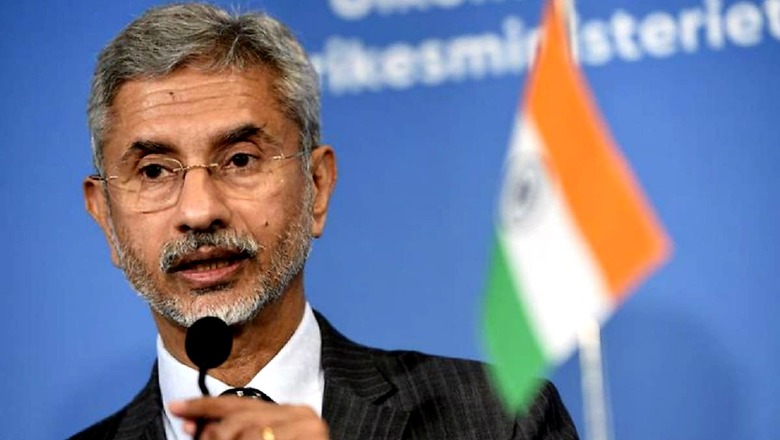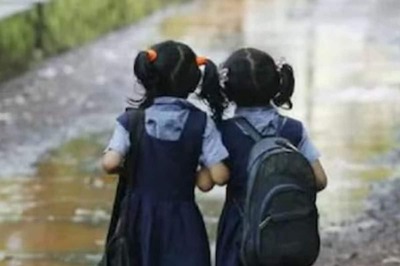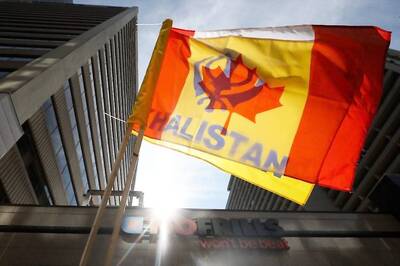
views
The coronavirus pandemic may be the most serious in living memory but it should be seen as a recurring challenge and not as a one-off episode, External Affairs Minister S Jaishankar said on Thursday, noting that India is particularly going through a difficult situation. Jaishankar also said the nature of the pandemic has also brought to fore concerns of trust and transparency and warned that opacity can no longer be overlooked as it has real implications for the rest of the world.
In an online address at the 'Future of Asia' conference organised by Nikkei, the external affairs minister India, Japan and Australia are working on a supply chain resilience initiative and called for strengthening and de-risking the global economy through effective partnerships. He said meeting the health and medical requirements of the world effectively requires a mature recognition of the global nature of the underlying supply chains. "Barring a select few, it cannot be addressed purely nationally and in fact needs a collaboration of a very different order," Jaishankar said.
He said the answer to the challenges thrown up by the pandemic is to expand and smoothen global flows while creating confidence that its outcomes are for the benefit of the entire world. "A year and a half ago, as the enormity of the COVID-19 pandemic dawned on the world, we were truly confronted by a black swan event. Since then, even though we may have addressed some facets of a very complex challenge, it continues its devastating course across geographies," he said. "We, in India, are going through a particularly difficult situation right now. Understandably, the world's attention is focused primarily on the public health response," Jaishankar said. He observed that the long-term impact of the pandemic on the global order, including on the future of Asia is yet to be fully comprehended.
"This pandemic may be the most serious in living memory, but it should be seen as a recurring challenge and not as a one-off. It demands international cooperation on a scale that could not have even be conceived of earlier," he said. "No national capacity, however large, can be adequate. And just overflows from such capacities are clearly not enough to address global needs. Even a collective response, by itself, could fall short if it is just an aggregate of the present capacities," Jaishankar noted, He said the world will have to focus on re-engineering the way it works to prepare for and mitigate such "cataclysmic events". "COVID-19 has certainly triggered debates on issues like supply chains, global governance, social responsibility and even ethics. But for many of us gathered here today, it equally encourages an objective assessment of the contemporary world so that we are better prepared for tomorrow," he said. Referring to cooperation under the Quad framework, Jaishankar said its agenda covers vaccine collaboration, critical and emerging technologies, semi-conductors, supply chains, critical materials and connectivity, amongst others. "Recent Indian summits with the European Union and the United Kingdom, that saw advancement on FTAs, are also noteworthy in that regard," he said.
The external affairs minister also mentioned key experiences in handling of the pandemic. "The nature of the COVID experience has also brought to fore concerns of trust and transparency. Opacity can no longer be overlooked; it has real implications for the rest of the world," he said. "It was bad enough to be confronted with shortages and disruptions; worse that they could become pressure points. There are also worries that the financial distress caused by the pandemic could lead to new vulnerabilities," he added.
Jaishankar said the coronavirus challenge has created a stronger case for greater international cooperation, be it in vaccine production or to facilitate economic recovery.
Read all the Latest News, Breaking News and Coronavirus News here. Follow us on Facebook, Twitter and Telegram.




















Comments
0 comment